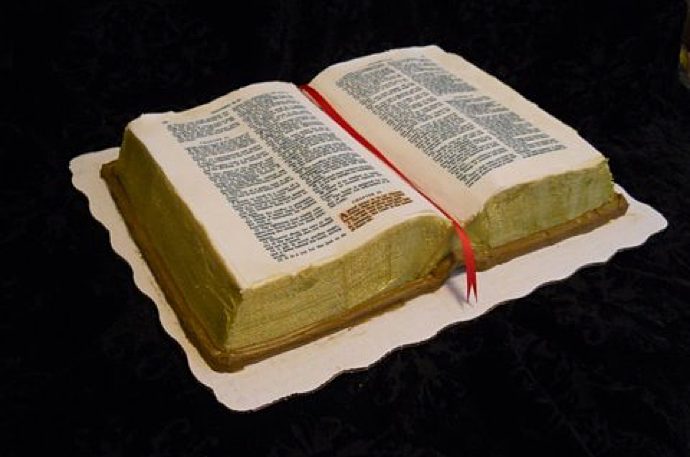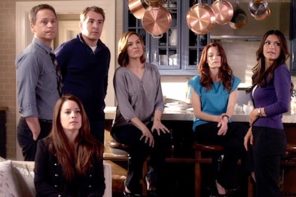Just three days after Attorney General Jeff Sessions gave a fawning closed-door speech to the nation’s best-funded anti-LGBT hate group and legal nonprofit, the Alliance Defending Freedom (ADF) asked the Supreme Court to review a second case featuring a business-owner who refused to provide wedding-related services to a same-sex couple.
The facts at issue there, in a consolidated case out of Washington known as Arlene’s Flowers v. Ingersoll and Arlene’s Flowers v. State of Washington, are substantially similar to another ADF case to which the Supreme Court just granted a writ of certiorari, Masterpiece Cakeshop v. Colorado Civil Rights Commission. In fact, ADF attorneys have asked the Supreme Court to consolidate the cases out of Washington and Colorado, according to the legal group’s press release about its latest filing. (ADF did not respond to several inquiries from RD seeking comment on these cases.)
But headline-grabbing facts of both those cases—a small-business owner refused to serve gay customers seeking a cake or floral arrangements for wedding celebrations—make it sound like the issue at stake is that of marriage equality. In fact, both of these cases turn on the question of discrimination, and the laws that exist to protect vulnerable populations.
Nondiscrimination laws require businesses serving the public to provide services without regard to a number of protected characteristics—including, in Washington and Colorado, an LGBT identity. (Washington updated its statewide non-discrimination law to include sexual orientation and gender identity in 2006, and Colorado followed suit in 2008.)
Those laws, duly enacted by state legislatures, are what Masterpiece Cakeshop and Arlene’s Flowers are really looking to undercut in the name of “artistic expression” and “religious freedom.” And that could have sweeping and dangerous implications for a much broader group of Americans than just LGBT people hoping to buy a wedding cake or flowers.
If the Supreme Court breaks with every other court that has heard these cases and accepts the specious “religious liberty” arguments ADF intends to advance, the Court would fundamentally “undercut and erode rules prohibiting discrimination,” said Louise Melling, deputy legal director and director for the Center for Liberty at the ACLU, which is representing the same-sex couples in both cases. “This case is a significant case,” continued Melling. “The claims presented by this bakery are claims for a constitutional right to turn people away in contravention of an anti-discrimination law. It’s a claim for a constitutional right, be it rooted in speech or religion, to discriminate.”
As such, Melling said, Masterpiece Cakeshop and, should the Court agree to hear it, Arlene’s Flowers, have implications that could widen the category of goods that can be denied based on a person’s identity, contingent upon a provider’s faith. “It has implications for the kinds of goods—be it housing and medical care, public accommodations, employment—[that could be denied],” Melling explained. “This could have implications, depending how it’s written, for other groups who are at risk for being turned away from a business in the name of the same principle. If the right of religion says that you can invoke your speech claims or your religious claims not to comply with an anti-discrimination rule, that puts everybody who is protected at risk.”
Of course, litigating the question of where a business owner’s religious freedom ends and a citizen’s right to equal accommodation begins is nothing new. Melling offered a long list of cases argued in state and federal courts where religious adherents sought exemptions to various anti-discrimination laws, claiming their faith prohibited them from serving a certain kind of person. While there are outliers, most courts have allowed only a narrow religious exemption to universally applicable nondiscrimination laws.
“The claims for religious exemptions have happened historically, and they’ve happened historically at moments of social change,” Melling explained. “When there are new laws passed to call for an end to discrimination in certain public spheres of this society, then we have seen, as we’re seeing now, calls for exemptions because of faith to those laws.”
But the question as it pertains to LGBT people—the idea that for providing service to us is tantamount to endorsing sinful conduct—has not reached the nation’s highest court until this year. In an interesting—or ominous—shift from prior cases on this issue, ADF is leaning heavily on its claims that both the baker and florist in these cases are artists, whose work has inherent artistic merit. They argue that their clients cannot be compelled to engage in artistic expression that contradicts an artist’s “sincerely held religious belief.”
That’s a slippery slope, Melling said. The public accommodation portion of non-discrimination laws regulate the conduct of businesses, and broadly insist that once a business opens its doors to the public, that business must provide whatever goods it offers without regard to the individual purchasing those goods. “Most businesses aren’t doing a deep inquiry [of their customers] in a manner that suggests that they’re thinking of their product, and the sale of their product, as endorsing those who buy the product,” Melling explained.
But, if ADF is successful in claiming that its clients are artists, rather than business-people, the scope of a decision in favor of the plaintiffs could have sweeping implications. “Where would that claim of artistry end?” Melling asked, noting that in addition to wedding service-providers like bakeries and florists, dress-shops, hair salons, and “any number” of other businesses could claim that their services are in fact a form of constitutionally protected artistic practice.
“The claim at issue here sounds as if the business can put up a sign in its window that says, ‘We sell cakes for heterosexuals only,'” Melling explained, taking ADF’s logic to its natural conclusion. “There’s an immediate consequence of that, and there’s a long term consequences of that, in terms of being turned away and what it means to approach the next business.”
Even if there are only a small number of businesses who would seek such an exemption, the harm to the fundamental non-discrimination principle is profound, Melling said.
“The claims advanced in the case have significant implications for public accommodations, as well as for claims to a right to invoke religion,” she added. “It’s in no means about a cake. This is a question about whether you can use religion or speech to turn somebody away; whether you can use those principles as a way to discriminate and undermine anti-discrimination laws.”





